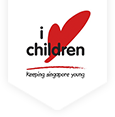By Tan Yi Lin
When it comes to managing personal finances, medical bills may not claim top spot on the list of financial concerns for couples intending to marry. They tend to focus more on funds for wedding preparations and the purchase of their new home.
However, when the time comes to planning for a baby, the medical bills, from pre-conception to childbirth and beyond, can be rather daunting.
Nevertheless, such costs can be managed by having a good gauge of the possible “cost centres” in the early stages of parenthood even before the baby comes along.
Pre-Conception
Generally, unless you are in favour of indulging in luxurious private retreats to get into the mood for love, there are little medical expenses involved in trying for a baby. However, if a couple does not successfully conceive within 12 months of trying, they may be advised by a gynaecologist to see a fertility specialist for investigation.
Dr Anupriya Argawal, a consultant at the NUH Women’s Centre, lists the standard fertility checks typically prescribed to identify the root of the problem. For the female, these include blood tests to check ovulation and ovarian reserve, tests to check for blockage in the Fallopian tubes (done using an x-ray called a hysterosalpingogram), and an ultrasound scan of the pelvis to identify problems like fibroids in the uterus and cysts in the ovaries. In certain cases, laparoscopy (a minimally invasive surgery) may be required to diagnose or treat the problem.
Male partners can expect to undergo a semen analysis and if abnormal results are yielded, other tests such as hormone analysis or ultrasound scans of the testis may be required.
A set of basic fertility tests at NUH costs about $700 per couple, excluding laproscopy fees and the cost of specialised male infertility investigations.
In cases where infertility is confirmed, some couples may require Assisted Reproductive Technology (ART), such as Intra-Uterine Insemination (IUI) and In-Vitro Fertilization (IVF), in order to conceive. The cost of ART treatment varies, depending on the condition of the patient. Typically, an IUI cycle costs around $1,000 and an IVF cycle ranges from $8,000 to $12,000 if conducted at public hospitals such as NUH, KKH and SGH. This excludes the cost of pre-treatment investigations and medications.
In Singapore, Medisave can be used for the above ART procedures for three cycles, with withdrawal limits of up to $6,000 for the first cycle, $5,000 for the second cycle and $4,000 for the third cycle. The Government’s co-funding scheme for ART procedures also support couple’s parenthood aspirations. The amount of co-funding varies, depending on the citizenship of the couple. More information about the co-funding scheme and use of Medisave for assisted conception procedures is available at the MOH website.
Antenatal Costs
Upon successful conception, mothers-to-be will go through a number of antenatal check-ups over the duration of the pregnancy. Such routine checks are necessary to ensure that both mother and baby are in good health. At NUH, the total cost of routine antenatal check-ups from conception until the estimated delivery date (excluding delivery) is around $900 to $1,500, depending on the doctor’s seniority. The cost includes antenatal consultations, ultrasound scans and one post-natal consultation.
Delivery costs vary depending on the delivery procedure and the type of ward and hospital that you decide to stay in. For example, a patient choosing to deliver normally in a Type B2 ward in a public hospital can expect to pay about $1,000 to $1,300 on average, as compared to about $3,800 to $6,000 for a Type A ward in a private hospital. The Ministry of Health (MOH) website compares estimated bill sizes across hospitals in Singapore for both normal and Caesarean births (http://www.moh.gov.sg/mohcorp/billsizeDetails.aspx?cId=10).
You can use your Medisave to pay for delivery and pre-delivery expenses under the Medisave Maternity Package. The withdrawal limit depends on the delivery mode, for example, $900 for normal delivery, $1,250 for an assisted normal delivery and $1,850 for delivery by Caesarean Section. The CPF website provides details of the Medisave Maternity Package and Medisave withdrawal limits (http://mycpf.cpf.gov.sg/CPF/my-cpf/have-child/HC2.htm).
Paediatric Costs – the first 12 months
A newborn baby needs to be vaccinated against childhood diseases so that his/her body can produce antibodies to fight off those diseases. The child will also be seen by a paediatrician for development assessment, usually on the same day as the vaccination.
During the first year of life, the costs of the compulsory vaccinations and paediatric consultations range from $1,800 to $2,000.
Capping Medical Costs
Beyond setting aside sufficient funds to pay for the medical expenses of having and raising a baby, expectant parents should also consider insurance coverage for pregnancy complications and congenital abnormalities. Having a medical reimbursement policy in place will allow better management of potentially costly procedures such as an emergency C-Section or certain neo-natal treatments that crop up unexpectedly upon delivery.
By planning ahead, making informed financial decisions, and taking advantage of the various government support schemes and insurance policies available, the medical costs related to having a baby can be well managed by all parents.
I Love Children would like to thank The NUH Women’s Centre and NUH Children’s Specialist Clinic (Clinic A) for their inputs.




